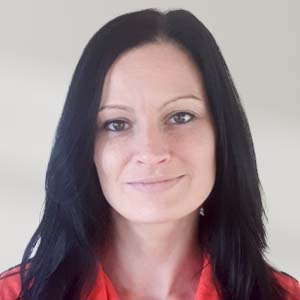Cutting-edge ABA interventions and research delivered by experts in the field
Meet our Speakers and explore their papers!
Member of the Scientific Comittee

Robert K. Ross
Ed.D., BCBA-D, CPBA-AP
Dr. Ross is the President and Founder of Ross Consultation LLC, a private practice providing High level Clinical consultation and oversight of programs serving children with ASD internationally.
He previously served as the Chief Clinical Officer at Beacon ABA Services of Massachusetts and Connecticut where he worked for over 30 years.
He received his Master’s in Applied Behavior Analysis from Northeastern University and his Doctorate from Nova Southeastern University.
Dr. Ross provided oversight to all clinical, research and training activity at Beacon ABA Services, he has been providing direct and consultation services to families, schools and educational programs and clinicians throughout the U.S., Canada, Italy, Saudi Arabia and Egypt for over 35 years.
He is a founding member and current Past President of the Massachusetts Association for Applied Behavior Analysis.
Dr. Ross is also the ABAI Special Interest Group Chair and Past President of the Autism Special Interest Group (SIG) of ABAI, has served three terms on the ABAI Practice Board and has been on the editorial board of Exceptional Parent magazine.
Dr. Ross is a member of the Progressive Behavior Analyst Autism Certification Council.
He has written and co-authored numerous articles on a range of topics in ABA based ASD treatment and a book chapter on Matrix Training in the Handbook of Social Skills and Autism Spectrum Disorder.
Dr. Ross is currently focusing his efforts on expanding access to quality ABA treatment internationally, including a focus on how we can use emerging technologies in both diagnosis and treatment of ASD.
Workshops
Analysis and Management of Problem Behaviors: An Overview of Key Tools and Practical Strategies
Workshop with Nicola Cefalo, BCBA, IBA, AdC.
An essential aspect of reducing and resolving problem behaviors is a thorough understanding of the underlying causes and functions. Conducting an ABC analysis (Antecedent – Behavior – Consequence) of a behavior and hypothesizing its possible function is the foundation for identifying the most effective intervention.
In the first part of the workshop, participants will practice conducting ABC analyses and hypothesizing the function of behaviors. In the second part, they will learn to describe at least three possible interventions based on functional hypotheses to effectively manage and modify problem behaviors.
The workshop will include practical exercises where participants will need to describe how to apply specific interventions such as extinction and differential reinforcement (DRI, DRA).
Workshop Objectives
Conduct ABC Analysis: Participants will perform ABC analyses of various behaviors and acquire the foundation to apply ABC analysis to new behaviors.
Distinguish Between Function and Topography: Participants will describe the different functions of behavior and make hypotheses based on ABC analysis.
Hypothesize Interventions: Participants will describe at least three possible interventions based on functional hypotheses to effectively manage and modify problem behaviors.
Intermediate level
Participation is recommended for parents and professionals (italian speakers) who have completed at least a basic ABA course (40 hours or more) and are well-versed in basic principles (e.g., reinforcement, extinction, dimensions of behavior) and behavior measurement.
Language: Italian (no translation available).

Nicola Cefalo
BCBA, IBA, AdC
Nicola Cefalo, founder of Data Driven ABA and a certified behavior analyst with BCBA, IBA, and AdC credentials, has been active in the field of Applied Behavior Analysis (ABA) since 2018.
In addition to providing behavioral interventions for individuals with autism and other disabilities, Nicola serves as an ABAI instructor and teaches advanced training courses for behavior analysts.
He has presented numerous posters and papers at international conferences such as ABAI and ECABA, and provides supervision in his area of expertise.
His practice spans all age groups, from children to adults, across various life settings, driven by research and data analysis to enhance the quality of life for his clients and their families.
Effective Leaders Do What It Takes! Organizational Performance Engineering for Provider, Parent, and Client Success
Workshop with Guy Bruce, Ed. D; BCBA-D
Do you work as a program designer, staff trainer, supervisor, or director of an agency that provides educational services to clients with learning difficulties? Are you satisfied with your clients’ progress?
Behavior analysis developed a powerful technology for helping people, but too many clients don’t receive the benefits. Why not?
The easy answer is that employees don’t do what they are told. But the employees’ performance, just like their clients’ performance, is a product of their environment.
Do employees have the resources, training, and management necessary to help their clients achieve their goals? What about their supervisors and their staff trainers? What about their directors? Organizations are groups of individuals who must work together to provide their clients with the outcomes they want.
The failure of clients to make adequate progress is not usually an individual employee performance problem, but a performance problem at the system process, and individual levels of the organization.
This workshop will teach you how to design and implement an ethical, pragmatic, organizational performance engineering process to change how providers work together, so that every client makes efficient progress.
The EARS process has the following steps: 1) Evaluate client progress; 2) Analyze causes of provider performance problems; 3) Recommend changes in provider resources, training, and management; and 4) Solve provider performance problems by designing and implementing recommended changes in provider resources, training, and management.
Workshop Objectives
- Label examples of ethical and unethical behavior change goals and methods.
- Label examples of pragmatic and dogmatic approaches to behavior change
- Distinguish between the goals of scientists, engineers and technicians.
- Describe the provider-recipient relationships needed to ensure efficient client progress.
- Evaluate client products, performance, and progress using frequent, accurate, sensitive measures.
- Analyze causes of provider performance problems using direct measures to identify can-do problems due to inadequate resources, know-how problems due to inadequate training, and want-to problems due to inadequate management.
- Recommend changes in provider resources, training, and management based on the analysis of provider performance problems.
- Solve provider performance problems by designing and implementing changes in provider a) resources, b) training, and c) management.
- Plan your own EARS project at your center, tutoring service, or school.
Activities
My workshops are highly interactive and practice intensive. I will also provide a beta-test version of a web-mobile application that makes it easy to evaluate client, parent, and provider products, performance and progress with some guidance on how to use that tool to design and implement the EARS process to change how providers work together so that every client makes efficient progress.
Language: English and Italian (Simultaneous translation).

Guy Bruce
Ed.D., BCBA-D
Since earning his Ed. D. in Educational Psychology from the Behavior Analysis in Human Resources program at West Virginia University, Dr. Bruce has taught behavior analysis in both undergraduate and graduate programs and consulted with variety of organizations, including BellSouth, Crystal River Nuclear Power, Delta Faucet, Dearborn Financial, Mayo Hospital, and Waddell & Reid Financial Services.
He is the author of Instructional Design Made Easy, a workbook for designing more efficient staff training programs and Organizational Performance Engineering for Provider, Parent, and Client Success, which tells the story of how he designed and implemented an organizational performance engineering process to change how preschool staff worked together so that every client could be successful.
In addition to conducting workshops on the application of organizational performance engineering, he is currently working with developers to complete ProgressCharter, a mobile/web application that will make it easy to implement the EARS Process of Organizational Performance Engineering.
The EARS process has the following steps:
- Evaluate client progress.
- Analyze provider performance problems.
- Recommend changes in provider resources, training, and management.
- Solve provider performance problems by designing and implementing recommended solutions.
Paper Sessions and Biographies
But wasn’t mum supposed to be just a mum?
Symposium
Traditional practice in rehabilitative contexts often excludes parents and family members from ABA sessions, limiting them to a peripheral role.
This exclusion raises important questions about the validity and effectiveness of ABA intervention.
The symposium will critically examine the practice of professionals who propose that “mum should be just a mum” by presenting studies conducted directly by parents who have taken an active role in applying ABA with their own children.
Based on the evidence presented, it will be up to the audience to conclude whether ‘mum should be just a mum’.
Effectiveness of Early and Intensive Behavioral Intervention in children with Autism Spectrum Disorder
Author Anna Budzińska, Ph.D.
The effectiveness of Applied Behavior Analysis (ABA) treatment has been proven by numerous scientific studies (Evidence-Based Practice – EBP). Scientific research clearly indicates that every child who received a diagnosis of autism should receive Early and Intensive Behavioral Intervention (EIBI).
Studies have shown that children receiving EIBI had better scores on standardized tests of IQ, language and adaptive functioning compared to children receiving other interventions.
During the lecture we will present the study “Effectiveness of Behavioral Intervention in children with autism in Institute for Child Development, Poland” (Marta Wójcik, Svein Eikeseth , Philip Eikeseth, Ewa Budzińska, Anna Budzińska).
In the Institute for Child Development (IWRD) in Poland we offer professional help based on positive approach of EIBI adhering to the highest ethical standards. We set treatment goals with the child’s well-being and happiness in mind.
A good motivational system makes the children feel happy and proud of their achievements.
Treatment program for a child with ASD is practical and include all areas of functioning and all stages of development of a neurotypical child.
The study shows outcomes achieved by 2,5 to 6-year-olds with autism who participated in intensive behavioral treatment based on the PCDI treatment model created by Krantz and McClannahan conducted by Institute for Child Development.
All children were assessed at intake and after 14 months of treatment with the Psychoeducational Profile – Revised, the Vineland Adaptive Behavior Scales-II, and the Childhood Autism Rating Scale.
During 14 months each child received an average of 20-25 hours of treatment per week.
A number of ABA principles and techniques were used such as differential reinforcement, prompting and prompt-fading, shaping, earless teaching procedure, chaining, and tasks analysis, discrete trial training, incidental teaching, activity schedules, scripts and script-fading procedures, video modeling.
Treatment was extended to the home settings and parents or caregivers participated in therapy. Our study, as other effectiveness research, show that EIBI can be an effective treatment for children with autism.
What is important current study evaluates Krantz & McClannahan model, which is applied in the USA and some European countries.

Anna Budzińska
Ph.D.
Director of the Institute for Child Development (IWRD) in Gdansk, Poland, an extremely influential training center and effective program for children with autism. She graduated from the Faculty of Social Science at the University of Gdansk, Poland.
Dr. Budzinska received training at the Institute of Psychology at the University, the Tidlig Intervensjons-Prosjektet I Oslo, the Kappellveien Treatment Center in Oslo and Oslo University.
Most influential, however, was her training at the Princeton Child Development Institute (PCDI) with Drs. Krantz and McClannahan. Dr. Budzinska established the first replication of PCDI in Europe in 2006 – Institute for Child Development in Gdansk (IWRD), providing effective intervention to children with ASD.
In addition, she has helped to establish centers for children with autism throughout Poland and Europe. Dr. Budzinska, through the Institute for Child Development in Gdansk, organizes the annual International Symposia, a well-attended science-based conference in Poland.
She is on the Board of Directors of Alliance for Scientific Autism Intervention (ASAI). She is also the member of Professional Advisory Board of International Behavior Analysis Organization (IBAO).
She has published a book and articles in Polish and foreign magazines and she teaches graduate and post-graduate courses at the University of Gdansk.
She has been dedicated to the training of therapists, trainers and supervisors. She is committed to promoting early intervention programs and science-based interventions for individuals with ASD both nationally and internationally (i.a. Norway, Slovakia, Austria, Italy).
She is an author of multiple publications and book chapters.
She is the co-author of ABA on-line course in Polish and English titled “15 minutes for treatment”.
Behaviour analysis of activity anorexia through animal models of behavioural excess
Author Ricardo Pellón, Ph.D.
Anorexia nervosa is a disorder characterized by the high failure of treatment approaches, both psychological and pharmacological.
The low rate of clinical success may be due to a mischaracterization in most commonly used classifications, which implies a therapeutic approach focused on non-nuclear symptoms and delayed diagnosis.
Some authors point out that core symptomatology of food rejection and distortions in the body image could develop in late stages and be the result of the neurological affectation of malnutrition, rather than the cause of the disorder.
The activity-based anorexia protocol has been widely accepted as an animal model of the disorder and has been used to test possible treatments for anorexia nervosa.
There is experimental evidence in activity anorexia suggesting that excessive activity is a crucial factor in the development of the phenomenon.
The aim of this presentation is to review the results from animal research using the activity-based anorexia model with an emphasis on the evidence and possible explanatory mechanisms of excessive activity.
Results obtained in our laboratory suggest that the combination of food restriction and exercise is the way to develop anorexia. Increased activity is a common foraging response in mammals subjected to food restriction.
This activity is expressed more frequently under diet, which facilitates its subsequent increase by mechanisms of reinforcement and induction. It has been proposed that the contingencies established by western culture encourage people to be involved in exercise and diet regimes, which in some individuals may lead to the combination of strong food restriction and hyperactivity, initiating the cycle of anorexia.
These results are in line with historical descriptions of the disorder and new clinical and research evidence that reports an excessive physical activity in a high proportion of diagnosed patients.
The proposed theoretical view will be based on basic and clinical research data of several studies that point in a similar direction, to propose a framework that can guide future research and clinical approaches to anorexia nervosa.

Ricardo Pellón
Ph.D.
Ricardo Pellón got the Degree in Psychology in 1980 and in 1987 defended his PhD in the area of Experimental Psychology, both at Universidad Autónoma de Madrid (Spain).
He has held research positions at the University of Cardiff, UK (1981-1984) and the Addiction Research Centre of the National Institute on Drug Abuse, Baltimore, USA (1990-1991).
In 2005-2006 he spent a sabbatical leave at Arizona State University, USA.
He is currently Professor of Psychology at Universidad Nacional de Educación a Distancia (UNED), Madrid, Spain, where he directs an Animal Learning and Behaviour Lab working predominantly (but not exclusively) on animal models of excessive behavior, such as schedule-induced polydipsia and activity-based anorexia, both using laboratory rats as experimental subjects.
He has published in international journals in the areas of learning and behavior, behavioral pharmacology, and neural substrates of behavior.
He teaches undergraduate students in Psychology, supervises master and doctorate researchers at different universities, and is normally involved in managerial aspects of the university life.
Effective Leaders Do What It Takes! Organizational Performance Engineering for Provider, Parent, and Client Success
Author Guy Bruce, Ed.D., BCBA-D
When providers don’t work together, clients fail to make efficient progress towards mastery of the knowledge and skills they need for successful lives. “Things Fall Apart.”
Ethical leaders do what it takes so that providers will act in each client’s long-term best interest. “If you pit a good performer against a bad system, the system wins almost every time.”
We can use behavior analysis to engineer provider behavior change at the system, process, and individual levels of a school, center, or tutoring program, to solve its organizational performance problems so that every client will make efficient progress towards mastery of the knowledge and skills needed for a successful life.
I will tell the story of a preschool for children with autism that was losing clients and staff because it lacked a pragmatic organizational performance engineering process to ensure provider, parent, and client success.
We designed and implemented the EARS process of organizational performance engineering to solve this problem.
The EARS process has the following steps: 1) Evaluate client progress using frequent, accurate, and sensitive measures, to identify as soon as possible when a client is not making efficient progress. 2) Analyze the causes of provider performance problems using direct, accurate measures. 3) Recommend changes in provider resources, training, and management based on the analysis. 4) Solve provider performance problems by designing and implementing changes in provider resources, training, and management.
Objectives
Participants will describe how to design and implement the following steps in the EARS process of ethical organizational performance engineering:
- Distinguish between examples of Skinner’s ethical, pragmatic approach to the science and engineering of behavior change and other approaches.
- Describe the benefits of Skinner’s ethical, pragmatic approach for providers and clients.
- Describe how to Evaluate client progress using frequent, accurate, sensitive measures.
- Describe how to Analyze provider performance problems using direct measures to identify their causes.
- Describe how to Recommend changes in provider resources, training, and management.
- Describe how to Solve provider performance problems by designing and implementing recommended solutions.
Everyone who attends this talk will receive a free subscription to ProgressCharter, a web-mobile application that makes it easy to design and implement the EARS Process of Organizational Performance Engineering, with a video demonstration of how to use ProgressCharter, and coaching on how design and implement the EARS process to change how providers work together so that every client makes efficient progress towards mastery of the knowledge and skills needed for a successful life.

Guy Bruce
Ed.D., BCBA-D
Since earning his Ed. D. in Educational Psychology from the Behavior Analysis in Human Resources program at West Virginia University, Dr. Bruce has taught behavior analysis in both undergraduate and graduate programs and consulted with variety of organizations, including BellSouth, Crystal River Nuclear Power, Delta Faucet, Dearborn Financial, Mayo Hospital, and Waddell & Reid Financial Services.
He is the author of Instructional Design Made Easy, a workbook for designing more efficient staff training programs and Organizational Performance Engineering for Provider, Parent, and Client Success, which tells the story of how he designed and implemented an organizational performance engineering process to change how preschool staff worked together so that every client could be successful.
In addition to conducting workshops on the application of organizational performance engineering, he is currently working with developers to complete ProgressCharter, a mobile/web application that will make it easy to implement the EARS Process of Organizational Performance Engineering.
The EARS process has the following steps:
- Evaluate client progress.
- Analyze provider performance problems.
- Recommend changes in provider resources, training, and management.
- Solve provider performance problems by designing and implementing recommended solutions.
How ABA Empowers parents – The True Role of Parents in ABA Programs
Author Fernando Armendariz, Ph.D., BCBA-D
This presentation will illustrate how the early contributions of the science of Applied Behavior Analysis (ABA) explicitly described parents as the most important persons that are in the best positioned to impact their child’s behavior.
The science and world-view of ABA empower the parents so they can have tremendous impact on the development of their children.
These strategies not only allow parents to have a very positive impact on the behavior of their special needs child, but they will also help to guide all their children to become happy, respectful, and responsible children.
The strategies that will be presented are both for parents to implement and for behavior analysts to guide parents to obtain these skills. The skills are not to drill the child in session in a clinic or playroom of the home, but rather to facilitate a lifestyle change.
This is done by establishing a set of skills that are implemented by parents (and other caregivers) during real situations, every second of every day throughout their daily lives.

Fernando Armendariz
Ph.D., BCBA-D
Dr. Fernando Armendariz is the director of FABAS, a consulting, training and habilitation agency that provides bilingual services to families and schools.
He is a Licensed Psychologist and a Licensed Behavior Analyst (BCBA-D).
He designs and supervises home-based programs for families of children with autism, attention deficit, or learning disabilities.
Dr. Armendariz also provides consulting and training services to schools.
He conducts Functional Behavior Assessments (FBA) and provides training on classroom behavior management and effective instruction.
He earned his Ph.D. in Special Education with school psychology specialization at the University of Arizona.
He was an elementary school principal for 8 years and has more than 35 years of experience assisting children with special needs in home and school settings.
Practical Functional Assessment (PFA): Why 40 years of data do not support this method of behavioral assessment
Author Michael M. Mueller, Ph.D., BCBA-D, IBA
Since the mid 1990s when Functional Analysis methods were popularized, the field of ABA has produced 100s of peer-reviewed, data-based, studies detailing the methods and outcomes of 1000s of functional analyses.
Many procedural variations exist within the functional analysis methods and all but one allows for the identification of single, multiple, or synthesized reinforcers.
The latest variation to enter the field is the “Practical Functional Assessment” (PFA). The PFA variation has gained considerable popularity in the field of ABA.
In spite of the popularity, a review of the existing data in the field do not support its use, outcomes, and underlying premise that all behavioral challenges are reinforced by synthesized variables.

Michael M. Mueller
Ph.D., BCBA-D, IBA
Co-founder of Southern Behavioral Group, Stimulus Publications, and the author of the Assessment of Functional Living Skills (AFLS).
He is the founder of the International Behavior Analysis Organization (IBAO).
Mike has practiced Applied Behavior Analysis with children, adolescents, and adults with autism in their homes, schools, state residential facilities, group homes, clinics, and other community settings.
He has delivered more than 100 conference presentations both nationally and internationally.
Dr. Mueller has more than 20 published research papers and 7 book chapters. He is the author of 10 books including, The Assessment of Functional Living Skills, The BIG Book of ABA Programs, and Behavior Analytic Consultation to Schools.
Understanding reinforcement systems and how they can help accelerate your teaching
Author Jesús Rosales-Ruiz, Ph.D.
Early behavior analysts who worked in both laboratory and applied settings knew that it was crucial to introduce the learner to their reinforcement procedures before further teaching could take place.
They knew that the learner must understand when reinforcement is available, where to go or what to do to access the reinforcer, how to consume the reinforcer, and how to go back to training after finishing the reinforcer.
Without this foundation, learners are not fully prepared for future learning.
Skinner more specifically described reinforcement as a chain of behaviors, rather than as an event, as reinforcement involves a series of actions.
In the context of autism therapy, reinforcement involves the interaction of two organisms, the therapist and child, and these interactions create an interconnected chain of behaviors.
Yet, this chain of interactions is often not explicitly taught, resulting in unwanted behaviors and slower progress for the child.
This presentation will introduce you to the idea of a “reinforcement system” and describe a procedure and data collection system for evaluating reinforcement systems during therapy sessions.
Rebuilding faulty reinforcement systems will help you increase teaching opportunities and accelerate the progress of your learners.

Jesús Rosales-Ruiz
Ph.D.
Dr. Jesús Rosales-Ruiz is an associate professor in the Behavior Analysis Department at the University of North Texas, where he has worked since 1994.
In 1995, he received his Ph.D. in Experimental Child Psychology from the University of Kansas, where he studied under Dr. Donald M. Baer and Dr. Ogden R. Lindsley.
Since 2020, he has served as the director of the Beatrice H. Barrett Behavior Analytic Neuroscience Initiative at the University of North Texas.
Among his many significant contributions to behavior analysis is the behavioral development cusp, introduced in 1996 together with Dr. Baer.
This groundbreaking work provides a behavior analytic account of the rapid changes that are often considered developmental and offers practitioners guidance when selecting target behaviors.
Additionally, Dr. Rosales-Ruiz has been at the forefront of bringing the science of behavior to the growing field of human-animal interactions.
His work on functional analysis and shaping has helped bridge the gap between academia and applied animal training.
He is also the co-creator of PORTL, the Portable Operant Research and Teaching Lab, a tabletop game which allows students and practitioners to experience behavioral principles and practice their teaching skills.
Data-Driven Autism Interventions Implemented by Parents
Chair: Michael Nicolosi, Psychologist (CH), BCBA and IBA (USA), AdC.
Measurement is the cornerstone of any effective intervention in behaviour analysis.
Without accurately and continuously collected data, it is impossible to ascertain not only the effectiveness of an intervention but also its potential risks or benefits.
Many studies underscore the importance of parental involvement in ABA interventions for children with autism, providing examples of interventions fully implemented by parents.
Despite this evidence, parents are often excluded from interventions based on the unfounded belief that they cannot and should not implement evidence-based corrective procedures, and should instead merely “act as parents.”
This symposium will review three cases of data-driven autism interventions entirely implemented by parents under the supervision of certified behaviour analysts.
It aims to highlight the critical importance of data-based decisions and the direct implementation of interventions by parents.
Vocal Stereotypies and Autonomy: a Parent-Implemented Behavioral Intervention
Authors Francesca Siciliano, Michael Nicolosi, Satia Riva, Gaia Pilotto & Nicola Cefalo
The present study discusses an ABA intervention applied with Lorenzo, a 6-year-old boy diagnosed with autism spectrum disorder.
The intervention was conducted entirely at the child’s home by his mother, who was responsible for implementing the ABA procedures prescribed by the Behavior Analyst and collecting data on progress.
At the start of intervention, Lorenzo faced significant challenges in various areas: he could only sit for short periods, walked inadequately alongside his caregivers, exhibited vocal and motor stereotypies, and struggled to independently perform simple daily activities, such as dressing or playing alone.
During the intervention, specific behavioral strategies were applied, such as chaining to build behavioral sequences, prompt fading to gradually reduce external assistance, and Activity Schedules to increase the structure of Lorenzo’s activities.
These approaches led to significant improvements: the data collected indicate that Lorenzo mastered 100% of the complex behavioral chains envisaged, such as preparing breakfast alone, dressing independently, and engaging in play without any external intervention.
These results highlight the effectiveness of a data-driven ABA intervention implemented by the parents of a child with autism spectrum disorder.
Collaboration, Self-Care Skills and Pica in a Parent-Implemented Intervention
Authors Michael Nicolosi, Gaia Pilotto, Nicola Cefalo, Satia Riva, & Francesca Siciliano
This study describes the behavioral intervention (ABA) conducted for Davide, a 9-year-old boy with autism spectrum disorder and intellectual disability.
The intervention was entirely conducted by the child’s mother under the remote guidance of the Behavior Analyst and the Assistant Behavior Analyst.
Three areas of the intervention will be analysed with the support of data and video recordings: teaching behavioral chains for personal and domestic self-care, developing programmes for gross and fine motor imitation, and using positive punishment procedures to reduce the behavior of putting inedible objects in his mouth (PICA).
At the beginning of the intervention, Davide exhibited an almost complete lack of personal and domestic self-care skills, he had difficulty sitting for extended periods, and significant problems with imitating movements.
The behavior of putting inedible objects in his mouth, present since the age of 2, occupied much of his day, especially in conditions of stimulus deprivation.
The ABA intervention included the application of techniques such as chaining with total task presentation, prompt fading, shaping, and positive punishment.
The collected data showed Davide’s learning of complex behavioral chains (tidying up toys, making the bed, setting and clearing the table, vacuuming), fine and gross motor imitations, and a significant reduction in pica behavior.
The procedures used led to tangible improvements in Davide’s cooperation and skills, highlighting the effectiveness of the parent-implemented ABA intervention.
Treating Birthday Phobia in an 11-Year-Old With Autism: A Parent-Implemented, Remote Intervention
Authors Nicola Cefalo, Satia Riva, Michael Nicolosi, Francesca Siciliano & Gaia Pilotto
Specific phobia is characterised by a persistent and excessive fear triggered by the presence or anticipation of a specific object or situation.
Behavioral responses can include wincing, crying, shaking, and avoidance behaviors such as attempting to flee. Research shows that fears and phobias are significantly more common among individuals with autism spectrum disorders (ASD) compared to their typically developing peers.
For example, Mayes et al. (2013) reported that parents of 421 out of 1033 children with autism (41%) noted unusual fears, representing 92 different types. Reinforcement procedures and exposure techniques are recognised as evidence-based interventions to address fears or phobias in individuals with ASD.
This paper presents an intervention aimed at treating a specific phobia of birthday-related stimuli in an 11-year-old girl with autism.
The intervention was implemented entirely by the parents, who were remotely supervised by the first author.
The intervention was carried out in three phases: obtaining instructional control and teaching necessary instructions, gradual exposure to birthday-related stimuli with reinforcement procedures of alternative behaviors, and exposure in natural settings. Initially, dining out or participating in social events was impossible due to the participant’s avoidance behaviors.
After five months, the family can now dine out and attend parties without any issues. The presentation will include data collected by the parents throughout the intervention.
The First Months of a Parent-Implemented Behavioral Intervention
Authors Nicola Cefalo, Satia Riva, Francesca Siciliano, Gaia Pilotto & Michael Nicolosi
This study describes an ABA intervention applied for Francesca, a 4-year-old girl with Autism Spectrum Disorder, Level 3.
The intervention was conducted by Francesca’s mother under the remote direction of a Behavior Analyst.
At the beginning of the intervention, in October 2023, Francesca showed many difficulties: almost constant crying, lack of cooperation when asked to follow simple instructions, lack of imitation of movements and sounds, refusal to sit on demand, behavioral rigidity during meals and drinking.
The ABA intervention was carried out by applying positive reinforcement, shaping, prompt fading, chaining, and extinction procedures.
The intervention proved successful: crying was significantly reduced, Francesca learned to sit and stay seated for prolonged times, to imitate movements and sounds in quantity, to carry out instructions on demand, and behavioral rigidity during meals and in drinking was abated.
The study supports the effectiveness of parent-led ABA interventions with evidence-based procedures and remote supervision by a Behavior Analyst.

Michael Nicolosi
BCBA, IBA, AdC
Michael Nicolosi is a psychologist, qualified as an ABAI Instructor and a behavior analyst with BCBA®, IBA®, and AdC certifications.
With a 15-year career in the field of autism and applied behavior analysis (ABA), he serves as Director of Services at Data Driven ABA.
As a behavior analyst, he works with children, adolescents, and adults, and has served as Director of ABA Services at several organizations.
He has taught ABA in over 80 training courses, published two articles in specialized journals, and presented over 10 scientific studies at international conferences.
Additionally, he teaches in post-graduate ABA courses for the Association for Advancement of Radical Behavior Analysis (AARBA).

Nicola Cefalo
BCBA, IBA, AdC
Nicola Cefalo, founder of Data Driven ABA and a certified behavior analyst with BCBA, IBA, and AdC credentials, has been active in the field of Applied Behavior Analysis (ABA) since 2018.
In addition to providing behavioral interventions for individuals with autism and other disabilities, Nicola serves as an ABAI instructor and teaches advanced training courses for behavior analysts.
He has presented numerous posters and papers at international conferences such as ABAI and ECABA, and provides supervision in his area of expertise.
His practice spans all age groups, from children to adults, across various life settings, driven by research and data analysis to enhance the quality of life for his clients and their families.

Satia Riva
IBA, AdC
Satia Riva is one of the founders of Data Driven ABA.
She is an IBA and AdC certified Behavior Analyst, has a Master’s degree in Psychology and a Professional Master’s degree in Autism and Developmental Disorders.
She has been working in the field of ABA since 2018 providing behavioral interventions to children, adolescents and adults.
She has made presentations and presented posters at conferences such as ECABA and ABAI.

Francesca Siciliano
BCBA, IBA
Francesca Siciliano is a psychologist, psychotherapist and behavioral analyst.
She is certified by the BACB® and IBAO®.
She has worked in the field of behavior analysis for almost 10 years and is an Associate at Data Driven ABA.
She conducts behavioral assessments and plans behavior modification interventions for people with autism and other disabilities.
She is a lecturer in post-graduate courses in ABA for the Association for Advancement of Radical Behavior Analysis (AARBA) and has presented various studies at International Conferences such as ABAI.
Scientific epistemology, historical antecedents from ABA and treatments without evidence: Behavior Analysis and the treatments of choice for Autism
Author Fabio Tosolin, Ph.D.
Abstract under definition…

Fabio Tosolin
Ph.D.
Fabio Tosolin is a Behavior Analyst and consultant that since the early 1980s has been introducing, spreading and applying Behavior Analysis and Organizational Behavior Management (OBM) principles both in Italy and Europe.
He founded his own consulting company, Behavioral Technologies, that is specialized in Performance Management, Learning Technologies and Behavior-Based Safety for the last of which he’s also a referent of European level.
His company implemented hundreds of PM and B-BS processes in plants and construction sites in Italy and around the world.
He is currently Professor of Human Factor in HSEQ Management (BBS) at the Polytechnic of Milan (Safety Engineering Master’s Degree Course, Faculty of Industrial Processes), and President of the Italy Associate Chapter of ABAI (IACABAI) and of AARBA – the Italian Behavior Analysis Scientific Society founded by the pioneers of ABA in Italy in 2001.
Since 2003 he has been the Chair of the European Scientific Conference on OBM, PM & B-BS, held by AARBA. He got the Outstanding Contribution Award in 2014 by OBMN and in 2019 he received the SABA Award for his contribution to the international dissemination/development of Behavior Analysis.
Inner Behavior: Definitions, Data, and Decisions
Author Abigail B. Calkin, Ph.D.
Abstract under definition…

Abigail B. Calkin
Ph.D.
Bio under definition…
Staff Training and Supervision for Behavioral Interventions for Children With Autism
Author Justin B. Leaf, Ph.D., CPBA-AP, BCBA-D
Training and supervising staff to implement effective behavioral interventions for children diagnosed with autism spectrum disorder (ASD) requires effective techniques.
This training can occur on a scale from one-on-one, group based, all the way to large scale internship models.
The purpose of this presentation is to present the audience with both clinical and empirical updates on the most effective ways to train staff to implement Progressive ABA as it relates to behavioral interventions for individuals diagnosed with ASD.
The presenter will go over the historical research on staff training and supervision, current guidelines of staff training and supervision, current research on staff training and supervision, and the implementation of staff training and supervision in clinical practice.
Throughout the presentation the presenter will describe staff training and supervision within a progressive model of ABA and encourage the audience to adopt the progressive model within clinical practice.
Finally, the presenter will provide some practical guidelines, so that the audience members can better train and supervise the staff they are working with.
Learning Objectives
At the conclusion of the workshop, the participants will be able to:
- Identify and describe the findings of at least 2 research studies on training and supervising staff.
- Identify 3 different approaches to effectively train and supervise staff to implement behavioral interventions to individuals diagnosed with ASD.
- Compare and contrast staff training in a progressive ABA model as compared to a conventional ABA Model.

Justin B. Leaf
Ph.D., CPBA-AP, BCBA-D
Member of the Executive Committee of ABAI’s Special Interest Group on Autism and Director of Research and Training at Autism Partnership Foundation (CA, USA).
He has authored more than 90 publications in peer reviewed scientific journals, as well as authored books on the topic of autism.
He is a lecturer in undergraduate courses in Applied Behavior Analysis and research methodology and has presented several symposia at national and international conferences.
Dr. Leaf is associate editor of the Review Journal of Autism and Developmental Disorders; serves or has served on the editorial board of the Journal of Applied Behavior Analysis, Education and Training in Autism and Developmental Disabilities and the Journal of Autism and Developmental Disorders.
Some Progressive Teaching Methods
Author Joseph Cihon, Ph.D., BCBA-D, CPBA-AP
One of the distinguishing features of a progressive approach to ABA as it relates to autism and autism intervention is that the main source of control for the interventionist’s behavior is the client and the client’s context.
Implementation of this approach requires methods that are flexible and can change based on moment-to-moment analysis of relevant variables (e.g., current and past performance, general health, client input). Interventionists cannot simply rely on a protocol, no matter how thorough, to inform what they should do and when they should do it.
The purpose of this presentation is to provide a description of several methods that may be considered progressive in their implementation as well as how methods can be implemented in a progressive manner.
Challenges with the implementation of these methods and research examples will also be provided.
Learning Objectives:
- Participants will identify and describe at least three ABA-based teaching methods that can be implemented in a progressive manner.
- Participants will identify and describe at least one variable that is required for a teaching method to be considered progressive.
- Participants will identify research examples that have evaluated ABA-based teaching methods that can be implemented in a progressive manner.

Joseph Cihon
Ph.D., BCBA-D, CPBA-AP
Dr. Joseph H. Cihon received his B. S. in special education from Fontbonne University, M.S. in behavior analysis at the University of North Texas, and his Ph.D. in applied behavior analysis at Endicott College.
He is currently the Director of Research at Autism Partnership Foundation, adjunct professor at Endicott College, Certification Coordinator at the Progressive Behavior Analyst Autism Council, and on the council for the Autism Special Interest Group.
Joe has 20 years of experience working with children, adolescents, and adults on the autism spectrum and with other developmental disabilities in home, school, and community settings.
His research interests in behavior analysis are broad and include evaluating assumptions within practice, examining historical foundations in behavior analysis, training thoroughgoing behavior analysts, examining the effectiveness and training professionals in shaping techniques, increasing favorable interactions among children, their families, and interventionists, developing contingencies to promote generalization and maintenance, and improving mealtimes for selective eaters.
Joe serves on the editorial boards for the International Electronic Journal of Elementary Education and Behavior Analysis in Practice and has published over 90 peer-reviewed articles, books, and book chapters.
Beyond the Boundaries of ABA: Trauma, Neurodiversity, and the Future of ABA
Chair: Michael Nicolosi. Speakers: Michael Mueller (IBAO), Joe Cihon (APF), Jennifer Fitzpatrick.
In recent years, Applied Behavior Analysis (ABA) has ventured beyond traditional boundaries, exploring the integration of trauma-informed practices and welcoming perspectives from the neurodiversity movement.
This evolution has sparked a heated debate among professionals, raising questions about the compatibility of such approaches with the scientific foundations of ABA.
The panel discussion aims to investigate the legitimacy of these issues, examining their compatibility with the empirical and scientific methodological framework that characterizes ABA.
Through critical analysis, it will assess whether these new orientations can represent an enrichment or a deviation from the discipline, reflecting on how the openness to concepts such as trauma and neurodiversity may influence the practice and theory of ABA.

Michael M. Mueller
Ph.D., BCBA-D, IBA
Co-founder of Southern Behavioral Group, Stimulus Publications, and the author of the Assessment of Functional Living Skills (AFLS).
He is the founder of the International Behavior Analysis Organization (IBAO).
Mike has practiced Applied Behavior Analysis with children, adolescents, and adults with autism in their homes, schools, state residential facilities, group homes, clinics, and other community settings.
He has delivered more than 100 conference presentations both nationally and internationally.
Dr. Mueller has more than 20 published research papers and 7 book chapters. He is the author of 10 books including, The Assessment of Functional Living Skills, The BIG Book of ABA Programs, and Behavior Analytic Consultation to Schools.

Joseph Cihon
Ph.D., BCBA-D, CPBA-AP
Dr. Joseph H. Cihon received his B. S. in special education from Fontbonne University, M.S. in behavior analysis at the University of North Texas, and his Ph.D. in applied behavior analysis at Endicott College.
He is currently the Director of Research at Autism Partnership Foundation, adjunct professor at Endicott College, Certification Coordinator at the Progressive Behavior Analyst Autism Council, and on the council for the Autism Special Interest Group.
Joe has 20 years of experience working with children, adolescents, and adults on the autism spectrum and with other developmental disabilities in home, school, and community settings.
His research interests in behavior analysis are broad and include evaluating assumptions within practice, examining historical foundations in behavior analysis, training thoroughgoing behavior analysts, examining the effectiveness and training professionals in shaping techniques, increasing favorable interactions among children, their families, and interventionists, developing contingencies to promote generalization and maintenance, and improving mealtimes for selective eaters.
Joe serves on the editorial boards for the International Electronic Journal of Elementary Education and Behavior Analysis in Practice and has published over 90 peer-reviewed articles, books, and book chapters.

Jennifer Fitzpatrick
BCBA, M.Ed., M.A
Jennifer Fitzpatrick is an author and consultant, and an expert in the field of Applied Behavior Analysis (ABA) therapy.
With a profound commitment to enhancing the quality of medical documentation and training, she has authored a series of textbooks that have become essential resources for healthcare professionals and educators in the field.
Fitzpatrick’s academic background in behavior analysis laid the foundation for her career.
She pursued her studies with a focus on understanding human behavior, which later translated into her work in ABA therapy.
Her passion for making a tangible difference in the lives of individuals with behavioral and developmental disorders drove her to explore innovative methods of treatment and education.
As a consultant, Fitzpatrick has worked with numerous healthcare organizations, schools, and therapy centers, offering her expertise to improve their ABA therapy programs and training modules.
Her approach often involves customizing strategies to meet the unique needs of each setting, emphasizing the importance of evidence-based practices and continuous improvement.
Jennifer Fitzpatrick’s dedication to her profession is evident in the breadth of her work and the impact she has made in the ABA therapy community.
Her contributions continue to shape the landscape of medical documentation and training, setting a high standard for excellence and innovation.
ABA in Europe: The Development of the Science of Behaviour in European Countries
Chair: Nicola Cefalo. Speakers: Olivier Bourgueil (ONPAC), Aoife McTiernan (EABA), Dag Strömberg (SWABA).
Some data indicate that while the demand for ABA services and the number of behavior analysts continue to increase in the USA, the situation for ABA is not as flourishing in Europe.
Despite the periodic organisation of ABA-related conferences for decades (EABA, ABAI International Conferences, ECABA) and the presence of university courses dedicated to behavior analysis, it seems that the field is encountering many obstacles and barriers that are preventing it from growing and developing in some countries of the old continent.
The speakers will describe the development and current situation of ABA in their respective countries, outlining the obstacles and barriers they have encountered.

Olivier Bourgueil
BCBA
Bio under definition.

Aoife Maria McTiernan
B.A., M.A., Ph.D.
Dr. Aoife Mc Tiernan is a Board Certified Behaviour Analyst – Doctoral and Chartered Psychologist.
She is the current Director of the MSc and PhD in ABA at the University of Galway, and has worked with educational settings and disability services for over fifteen years.
She has served on the Board of the European Association for Behaviour Analysis, is a committee member of the Psychological Society of Ireland’s Division of Behaviour Analysis, and serves as Vice-President for International Relations on the Standard Celeration Society.
Dr. Mc Tiernan has an interest is in the dissemination and integration of behaviour analytic and evidence-based approaches into educational settings.
She has a special interest in Precision Teaching and accelerating learning for students at risk and in areas of socio-economic disadvantage, and has a number of publications in this area, including large group studies conducted in educational settings.

Dag Strömberg
M.Sc., SLP, BCBA
Dag Strömberg is a speech-language pathologist, behaviour analyst (BCBA), doctoral student at the Department of Special Education at Stockholm University and president of the Swedish Association for Behavior Analysis.
Course coordinator for the Master’s degree in Applied Behavior Analysis and Autism at the Department of Psychology, Stockholm University.
For over 25 years, he has worked in services for people with autism, intervening directly with children and caregivers, and providing supervision and training for staff in schools and specialized centers.
He has also been involved in various international projects, mainly in France, Russia and India.
Become a Sponsor





